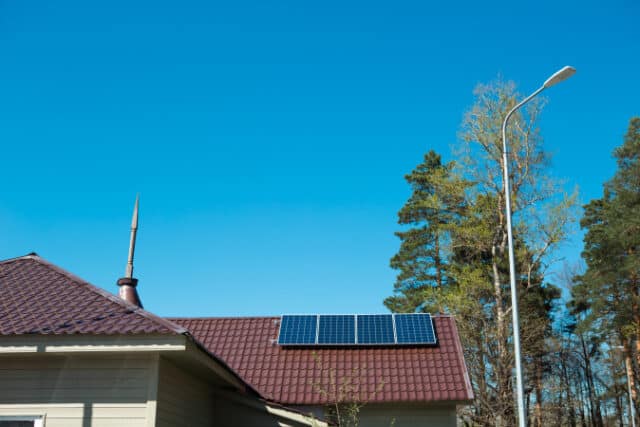
Florida produces more solar power than the vast majority of other states. In 2021, it came in third in terms of total solar power generation capacity, losing out to only California and Texas.
Despite the impressive ranking, the state needs to up its rooftop solar game, as found in the report Blocking Rooftop Solar, published by Environment Florida in association with the Frontier Group and U.S. PIRG.
In particular, the state lags behind smaller ones when it comes to roof solar panels. The report cites utilities, lobbyists, and ‘front groups’ as the responsible forces that are impeding the flow of clean energy in Florida.
Obstacles to Solar Power Financing
The Sunshine State does not permit Power Purchase Agreements—financial agreements under which a developer organizes the design, permits, financing, and installation of solar energy systems on clients’ rooftops at little to no cost.
The developer then sells the power generated to the customer at a fixed rate that is usually lower than that charged by local utilities. The price paid aids in offsetting the customer’s purchase of energy from the solar grid, while the developer profits from the sale of electricity, in addition to receiving tax credits and incentives.
What is the Cost of Solar Panels in 2022?
Floridians pay little for solar energy—just $2.53 per watt—an amount that is 16% lower than the U.S. average. In other words, the average price of a 5-kW home solar system is $12,650. This amount drops to $9,361 after tax cuts. Of course, prices can go up or down depending on a wide array of factors—including the type of panels chosen, the type of financing opted for, and the costs charged by one’s chosen installation company.
A New Bill Threatened the Future of Solar Panels
A bill named SB 1024 was introduced in January 2022, aiming to revise Floridan’s net-metering policy. The latter reimburses customers for the excess electricity their solar systems produce and return to the grid. If the bill (which was filed in January 2022) had been passed into law, customers would have seen their reimbursement rates drop by 75%. In March 2022, the bill The good news is that On April 27, Governor DeSantis vetoed SB 1024’s companion anti-solar bill, HB 741. Had it been passed, it would have denied energy freedom to around eight million customers and driven ills up considerably.
Is Long-Term Financing the Solution?
Until PPS agreements are allowed in the state, it is vital to find alternative solutions to boost the number of rooftop solar panels. Some financiers have developed long-term financing solutions lasting around 20 years. Under these agreements, customers would pay less than the value of the energy produced, spreading payments out over time, so they barely notice their dent in the family budget. Some financiers are permitting homeowners to transfer these loans to buyers in the event that a home is purchased.













[…] a handful of states (Florida not among them) allow power purchase agreements for solar, which reduce upfront costs to customers by allowing developers to organize the permitting, […]
[…] a handful of states (Florida not among them) allow power purchase agreements for solar, which reduce upfront costs to customers by allowing developers to organize the permitting, […]
[…] a handful of states (Florida not among them) allow power purchase agreements for solar, which reduce upfront costs to customers by allowing developers to organize the permitting, […]
[…] a handful of states (Florida not among them) allow power purchase agreements for solar, which reduce upfront costs to customers by allowing developers to organize the permitting, […]
[…] and corporate utilities are reined in.Only a handful of states (Florida not among them) allow power purchase agreements for solar, which reduce upfront costs to customers by allowing developers to organize the permitting, […]